EU workplace headscarf ruling could force hijabis out of work
- Published
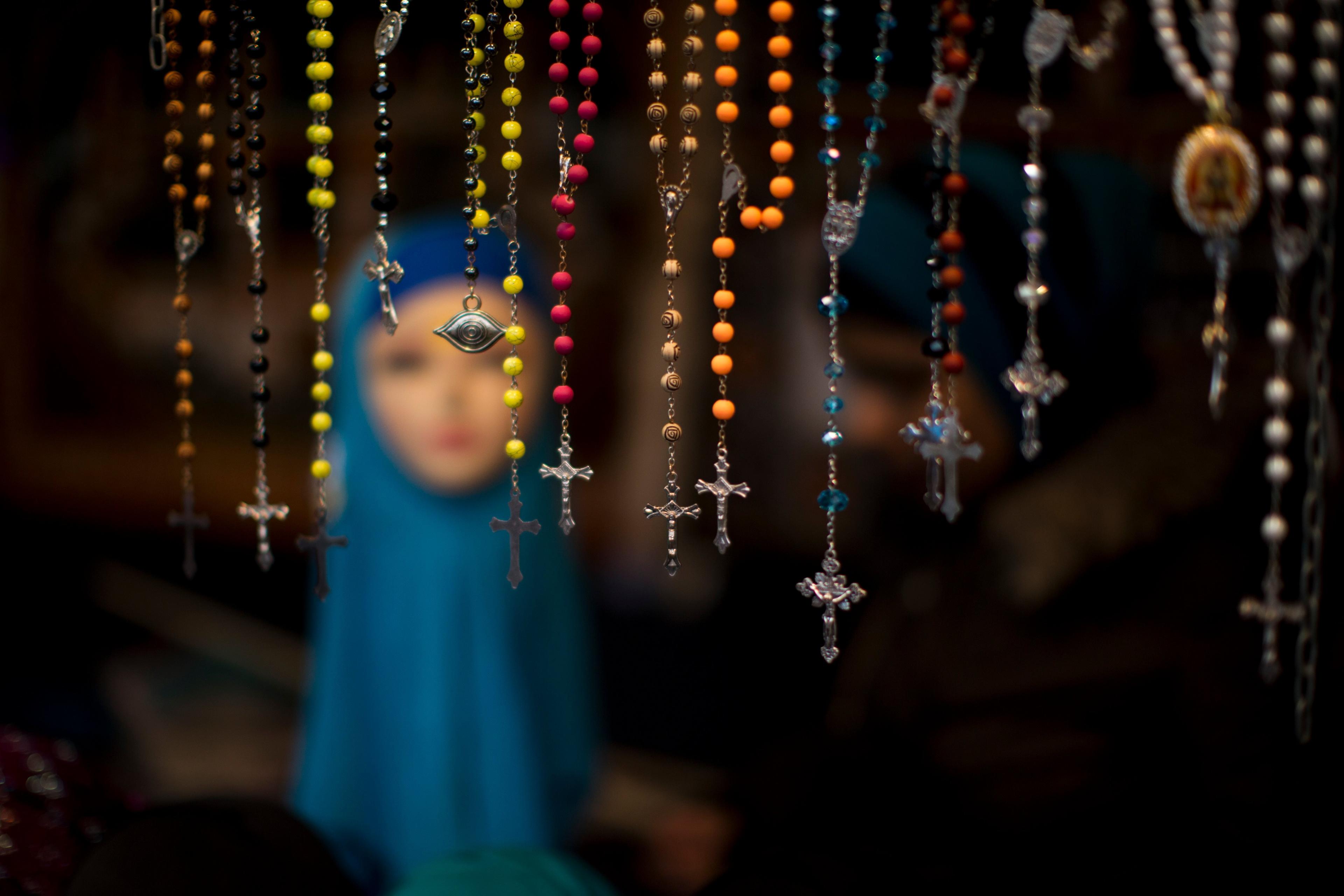
A ruling by Europe's top court legalising a ban on wearing religious symbols in the workplace has been met by both support and anger online, with some speculating about what this could mean for hijabis at work.
The European Court of Justice (ECJ), ruled on Tuesday morning that employers are allowed to ban workers from the "visible wearing of any political, philosophical or religious sign" including headscarves.
The ruling was prompted by the case of a receptionist who was fired from security company G4S in Belgium for wearing a headscarf to work.
Some European countries have banned full-face veils in public spaces.
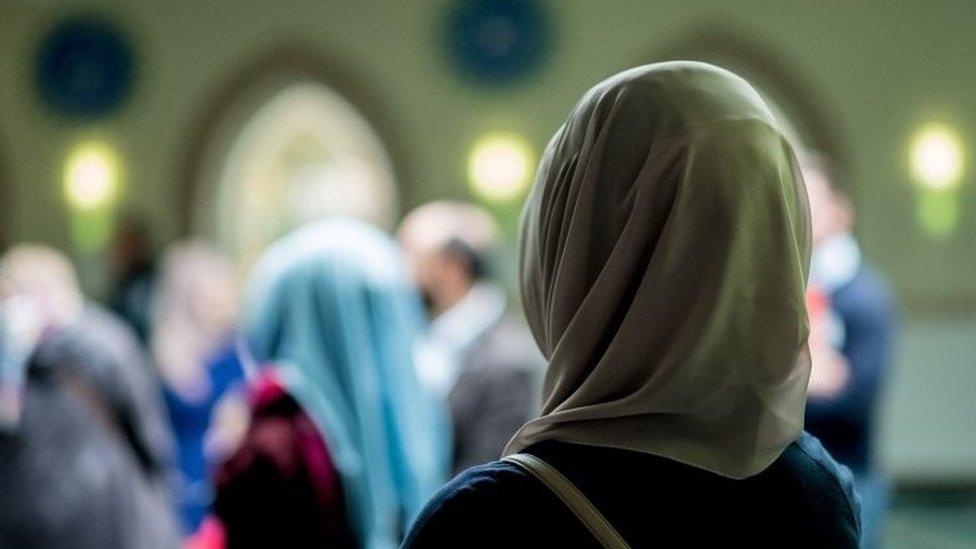
There are lots of different kinds of coverings worn by Muslim women all over the world, including the hijab, niqab and burka.
Social media chatter focused on how the ruling could affect working Muslim women, with one saying, external it would "force them out of the workforce".
"So, women wearing headscarves should sit at home or what?" London-based Sasha Murr commented, external.
Ayesha told the BBC: "I'm an optometrist who meets patients all day. How does my covering or uncovering my hair affect my performance? And why should it cause any offence to others?"
And Tabassum emailed to say her head scarf would always come before a job.
"I am a top performer at my company and headscarf doesn't make difference to my talent, my skills, my performance or my work but then I could be kicked out from my job because I wear a scarf. If I have to choose between my head scarf and job, I will definitely choose my head scarf," she wrote.

You might also be interested in:

Shortly following the ruling, a French woman applauded, external the court on Twitter for doing away with a "symbol of submission".
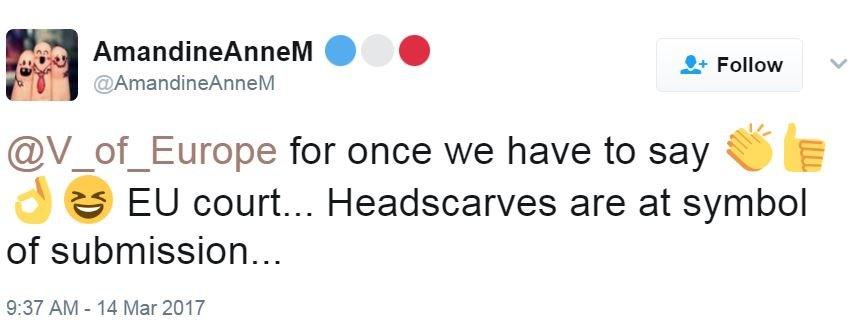
Echoing this sentiment, another UK Twitter user said, external that "schools need to follow suit. It's an oppressive symbol and has no place in the UK".
But another called, external for having a religious distinction to the ban: "The UK is a Christian country, keep the cross, ban the headscarves."
John Phillips from Milton Keynes emailed the BBC to say why he was for the ruling.
"Finally, finally common sense has prevailed! A religion or religious belief is an individual - a personal - choice," he wrote.
"Religion, and/or it's observance should play no part whatsoever in public life. It should remain in the home and/or the relevant faith's house of worship."
One user distinguished, external between different coverings: "I understand the safety rationale banning niqab/burqa, but banning hijab is like banning cross-shaped accessories."
Some drew attention to the ban extending to symbols from other faiths and people who chose to wear scarves for other reasons.
"If EU ruling on headscarves does truly apply to all religious symbols then cross jewellery/rosaries, turbans and kippas should face same bans," one Twitter user said, external.
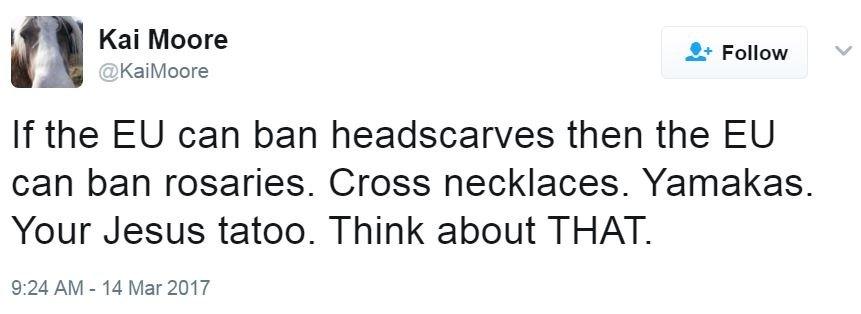
"So...no more crosses, Virgins, Saints images or Shield of David can be worn?" Anna MacMillan reacted, external to the news on Facebook.
"Does this mean such companies will not be allowed to celebrate Christmas by decorating their offices," Ali emailed.
A student in the UK pointed out, external what she said was the contradiction between abolishing sexist dress codes at work while at the same time telling women what they can and cannot wear.
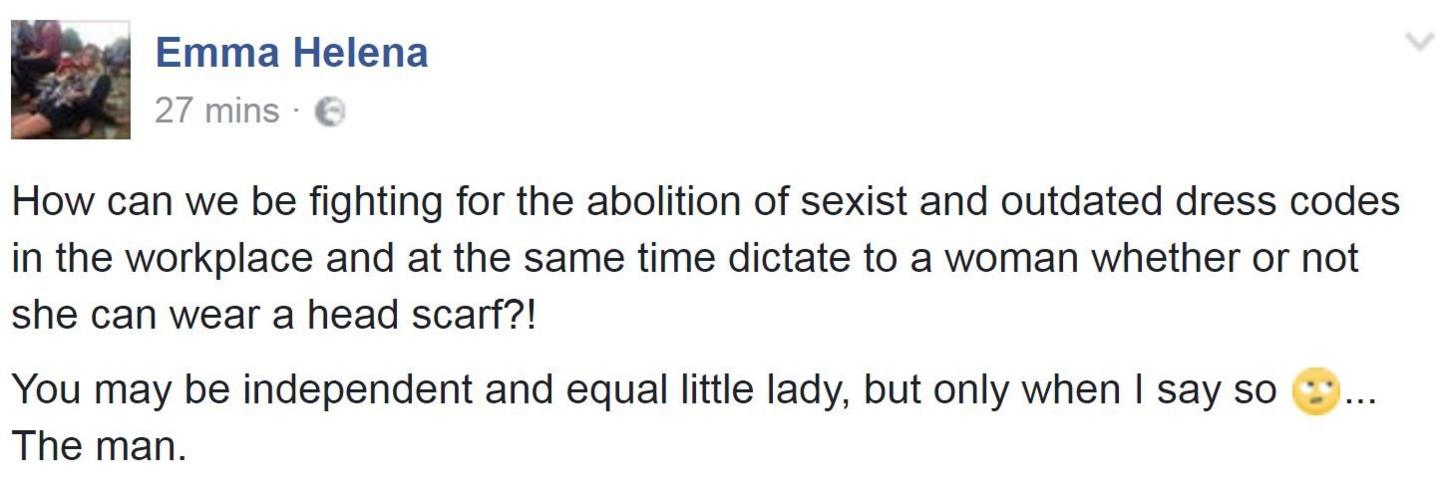
Cincinnati-based Paul Bowen took it further, external: "If it's wrong for Muslim societies to tell women what to wear, why is it OK for European societies to do so?"
"Given that lifestyles based on conspicuous consumption seem to be at least quasi-religious, I'm now waiting to see a ban on wearing a Rolex watch at work, or arriving at work in a BMW," Ian Cuthbert continued, external.
By the UGC and Social News Team